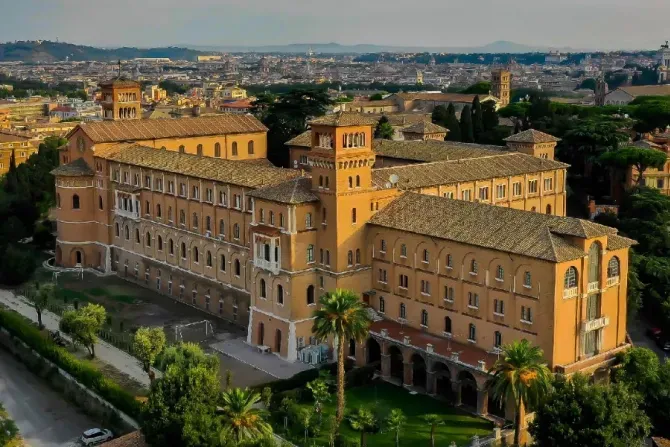Vatican, 22 July, 2021 / 7:03 pm (ACI Africa).
The new secretary and undersecretary of the Vatican’s Congregation for Divine Worship both have studied at the Pontificio Ateneo Sant'Anselmo, an institute in Rome whose school of liturgy has had increasing influence in liturgical norms coming from the Vatican.
Created in 1637, disbanded in 1837 and restored by Pope Leo XIII in 1887, the Ateneum’s headquarters have been on the historic Aventino Hill in Rome since 1896. The Pontifical Liturgical Institute of the Pontificio Ateneo Sant'Anselmo was established in 1961 by Pope John XXIII and was entrusted to the Benedictine monks.
The Apostolic See established it as the faculty of Sacred Liturgy of the Pontificio Ateneo Sant'Anselmo; it is located just a few feet away from the Roman Church of Santa Sabina where pontiffs, including Pope Francis, traditionally celebrate Ash Wednesday Mass every year.
Archbishop Piero Marini, the pope's master of ceremonies for his trips in Italy and a former master of ceremonies for Pope John Paul II, is also a proud alumnus of the institute. Piero Marini is regarded as responsible for the extravagant liturgical vestments that John Paul II was forced to wear during his final years. Upon entering his office, Pope Benedict XVI immediately transferred Marini to the office for Eucharistic Congresses.
Fr. Corrado Maggioni, who has been serving at the Congregation for the Divine Worship and the Discipline of Sacraments since 1990 and is now an undersecretary at the congregation, also studied at Sant'Anselmo.








